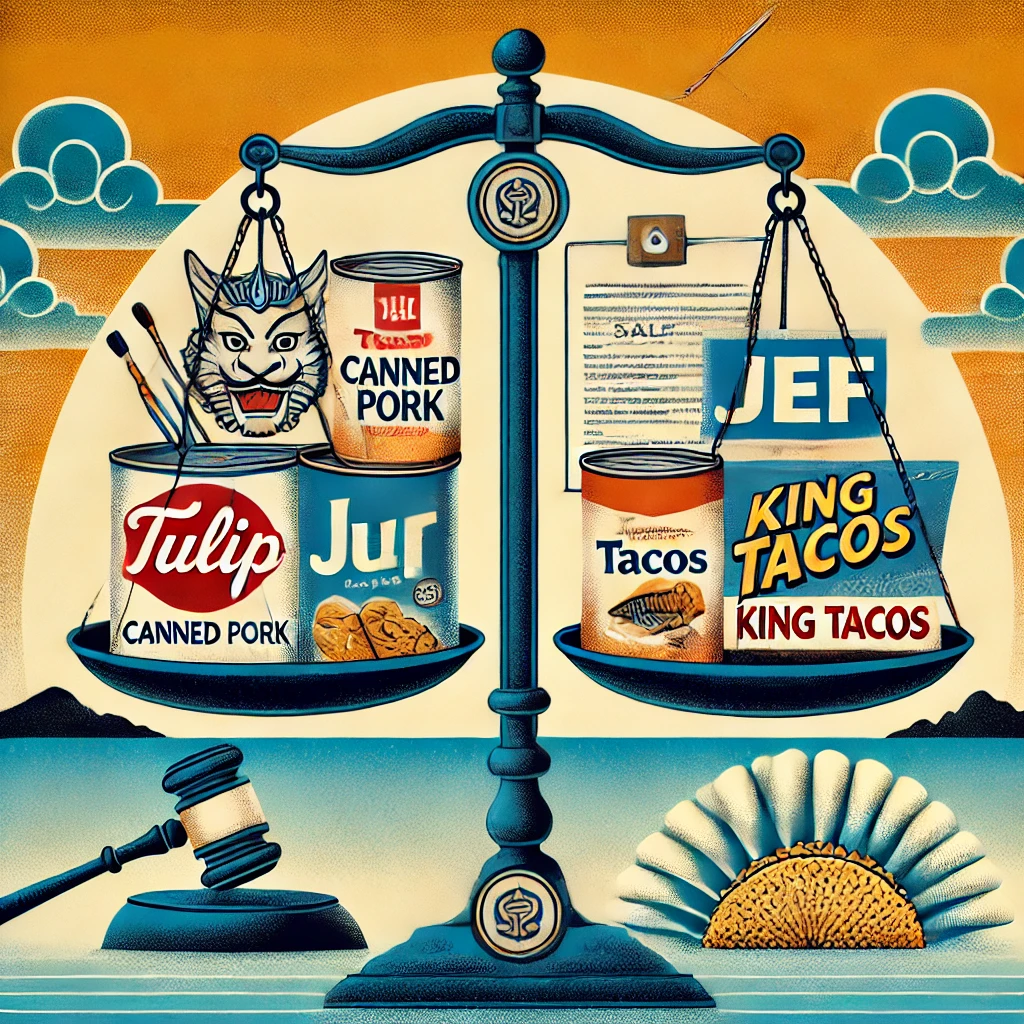A recent news story has gained attention regarding four companies that operate the Okinawan soul food brands “TULIP,” “Jef,” “Shima-Maas,” and “King Tacos.” These companies have issued statements opposing trademark applications filed by a Nago-based company, Ryukyu Works. This article explores the issue from the perspective of trademark law and regional brand protection.
What is the Issue?
In this case, Ryukyu Works has applied for trademark registration in the merchandise category, including T-shirts, stickers, and towels. The four companies are protesting the application, claiming that it “violates the intended order of trademark law.”
A trademark is originally meant to distinguish the products or services of a business. However, Japan follows a “first-to-file” principle, meaning that the first entity to apply for a trademark is given priority. As a result, if companies do not proactively protect their own brands, third parties may register the trademarks and restrict their usage.
The president of Ryukyu Works has emphasized that their application was made “before someone else could take it,” suggesting good intentions. However, the fact that the application was made without the consent of the four companies has become a point of contention.
The Challenges of Protecting Regional Brands
This case is also significant as an issue related to Okinawa’s regional branding. Names such as “Shima-Maas” and “King Tacos” are deeply connected to Okinawan culture and hold meaning beyond just corporate branding.
However, under Japan’s trademark system, names that combine a “regional name + generic term” are often difficult to register as trademarks. This can lead to situations where regional brands are inadequately protected, leaving them vulnerable to third-party trademark applications in merchandise categories.
For example, in the past, Kumamoto Prefecture successfully registered the “Kumamon” trademark at an early stage and established numerous licensing agreements with companies, enabling proper brand management. Okinawan companies should take similar proactive steps to protect their regional brands.
Corporate Responses and Future Developments
In this case, the four companies have submitted information to the Japan Patent Office regarding the circumstances of the trademark application. Depending on the examination outcome, Ryukyu Works’ application may be rejected. Additionally, Ryukyu Works has indicated that it is considering options such as “withdrawing the application” or “transferring the rights after registration,” leaving room for a negotiated resolution.
If the Japan Patent Office approves the trademark registration, the four companies may need to enter into a licensing agreement with Ryukyu Works to continue selling merchandise under their brand names. This situation highlights how the failure to register their trademarks in advance contributed to the problem.
Countermeasures Against Trademark Issues
This case serves as a lesson, demonstrating the need for the following measures:
- Raising Trademark Awareness Among Companies
Companies specializing in the food industry, like these four, often do not anticipate selling merchandise. However, considering potential business expansion, they should plan for comprehensive trademark registration.
- Comprehensive Protection of Regional Brands
For traditional Okinawan foods and cultural icons, it is important for local governments or chambers of commerce to take the lead in establishing a system to protect these trademarks.
- Revisiting Trademark Law
Since the first-to-file principle can sometimes be exploited by third parties, discussions on revising trademark law or its enforcement may be necessary.
Conclusion
This trademark dispute is not merely a business conflict but an event that prompts reflection on the nature of Okinawa’s regional branding. Increasing corporate awareness of trademark issues and advancing proactive regional brand protection will be key to preventing similar problems in the future.
